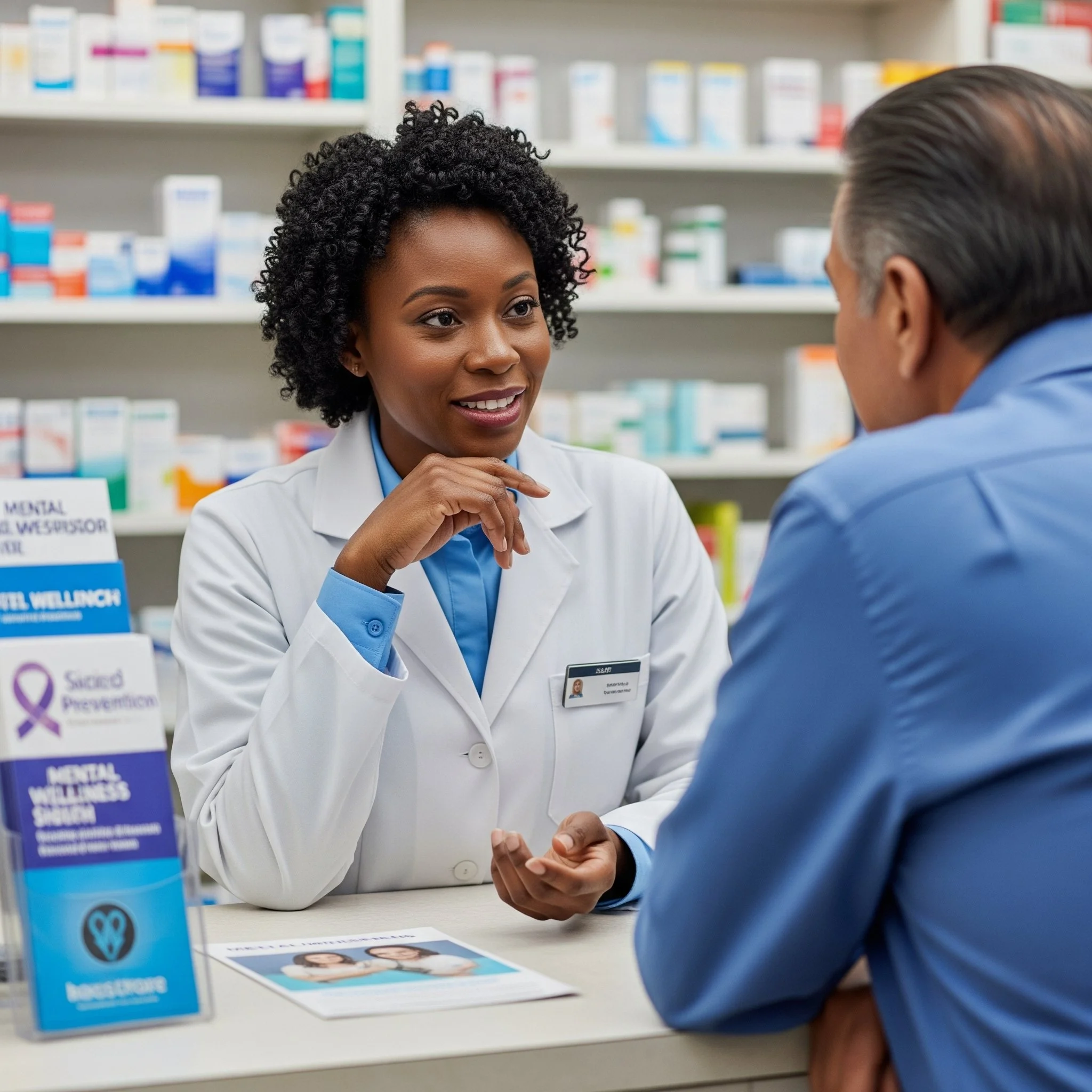The silent crisis: how pharmacies could help address America's behavioral health epidemic
A few headlines caught my attention recently…
First was the Air India flight 171 incident which tragically killed 260 passengers, crew members, and people on the ground. As I read more about it, I came across aviation YouTuber, Captain Steve, who thoughtfully interpreted the interim crash report and addressed the frightening possibility that this could have been a suicide. Aviation Week quoted other experts pointing in the same disturbing direction. I will come back to Captain Steve's simple advice for addressing our mental health awareness in a moment.
The second headline that caught my attention came from STAT News: The overlooked demo with the highest risk of suicide. The article highlighted that the suicide rates for men over 55 have risen more than any other demographic in the past 20 years; a statistic that hits closer to home than I would like.
The behavioral health crisis we can’t ignore
We don’t need reminders that America is in the midst of a behavioral health crisis. I asked my preferred AI assistant, Perplexity, to quantify the scope, and here’s what I found:
Nearly 60 million adults experienced a mental health illness in 2024
One in five young people ages 12–17 experienced at least one major depressive episode in the past year, and half received no treatment
Substance Use Disorders (SUD) affect more than 45 million adults and 2.3 million youth
There were 49,316 suicide deaths reported in 2023
Annual emergency department visits with mental health or behavioral health diagnoses exceeded 5.9 million in 2022
Image created with Gemini 2.5 Flash
Pharmacies: overlooked frontliners in behavioral health
Despite the staggering statistics, the pharmacies at the forefront of behavioral health remain largely overlooked. Some pharmacies serving this market include:
These and others are doing invaluable work in this space helping individuals with behavioral health challenges, but their efforts don’t get nearly the media attention that the struggles of independent or chain retail pharmacies do.
Pharmacists are in prime position to make a significant impact treating and identifying mental health conditions. With 90% of Americans living within five miles of a community pharmacy and patients visiting their pharmacists twice as often as their physicians, pharmacists are among the most trusted and accessible healthcare professionals. Access like this gives them an incredible opportunity to be a resource in a system where behavioral health services are in short supply.
A national opportunity: expanding pharmacists' role in behavioral health
We could see massive productivity gains in pharmacies with the increasing use of AI, giving pharmacists the time and tools to expand their involvement in mental health care. For example, a recent article in Pharmacy Times described how Yale New Haven Hospital collaborated with community pharmacists to implement a program allowing pharmacists to administer Long-Acting Injectable Antipsychotics (LAIAs), providing a powerful example of what’s possible when pharmacies are empowered to support behavioral health treatment.
However, even with such promising models, we need more trained professionals in the field. The American Association of Psychiatric Pharmacists has just under 3,000 members, of which only 1,500 hold psychiatric pharmacy certifications. With approximately 300,000 licensed pharmacists in the U.S., there’s a clear need for more specialized training and expertise to meet this growing demand.
The critical role of pharmacists in addressing behavioral health
With the looming cuts to Medicaid and policies supporting the relocation of homeless individuals, the country is going to need more trained talent on the front lines of behavioral health care. As community-based pharmacists are already the most accessible healthcare professionals, I believe they can play a major role in filling that gap. The fact that most people already trust pharmacists and frequently visit them provides a unique opportunity to engage in meaningful conversations about mental health.
A simple, yet caring question
Back to Captain Steve. In one of his videos, he recalls an experience as a military flight instructor when he noticed one of his students seemed distracted in-flight. Captain Steve simply asked, "How are you doing?" The student broke into tears, sharing his ongoing family crisis. Captain Steve safely landed the plane, and now, as an American Airlines commercial pilot, he starts every pre-flight check with the same question: "How are you doing? Seriously, how are you doing? Ready to fly today?"
Imagine if every community pharmacist in America had the time to ask that question to each of their patients. And more importantly, imagine if they had the resources to respond no matter what the answer.
So, I ask you: How are you doing? I truly care about every reader, and I hope you are all doing well. But if you're not, I hope you have someone like Captain Steve to talk to. If not, I’m a phone call away.
What are your ideas?
I want to hear from you. How do you think we can empower pharmacists to play a bigger role in mental and behavioral health? Whether you’re a pharmacy professional, policymaker, or someone who’s worked with behavioral health patients, your insights matter. Please share your thoughts and experiences in the comments below. Together, we can create a stronger, healthier future for our communities, one person at a time.

